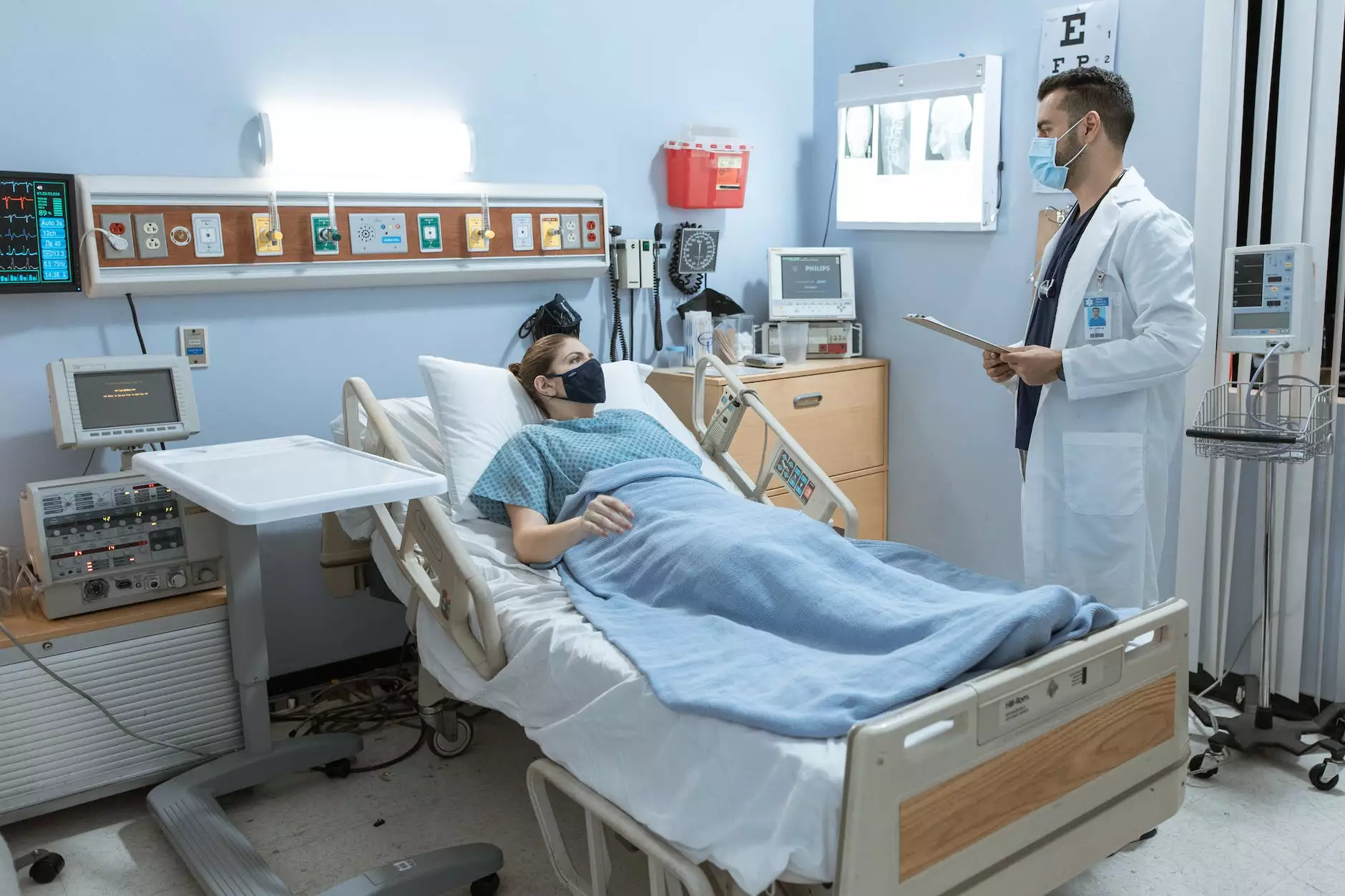Understanding the Importance of Medical Instruments in Healthcare

The world of healthcare is constantly evolving, with new technologies and practices emerging to improve patient outcomes. A critical component of this evolution is the use of medical instruments. Whether you’re running a hospital, clinic, or private practice, understanding how to effectively buy medical instruments is essential for providing the best possible care.
What Are Medical Instruments?
Medical instruments are devices or tools used in the diagnosis, treatment, and monitoring of patients. They range from simple tools like thermometers to complex machinery like MRI machines. These instruments are essential in various healthcare settings, including hospitals, outpatient clinics, and home care environments.
The Importance of Quality in Medical Instruments
When it comes to healthcare, the quality of medical instruments cannot be compromised. High-quality instruments can lead to better patient safety, enhanced diagnosis accuracy, and overall improved patient care. Here's why quality matters:
- Safety: High-quality instruments minimize the risk of malfunctions, which can lead to potentially dangerous situations for patients.
- Accuracy: Reliable medical instruments ensure accurate readings and results, crucial for effective treatment plans.
- Durability: Quality instruments tend to be more durable, providing better long-term investments for healthcare facilities.
- Compliance: Using high-quality, compliant instruments helps healthcare providers meet industry regulations and avoid legal issues.
Factors to Consider When Buying Medical Instruments
Purchasing medical instruments is not a simple task; it requires careful consideration of several factors. Here are some critical aspects to keep in mind:
1. Identify Your Needs
Before making a purchase, identify the specific needs of your healthcare facility. Consider aspects like the types of patients you serve, the treatments you provide, and the outcomes you aim to achieve.
2. Research Suppliers
Finding a reputable supplier is crucial. Look for suppliers who specialize in medical instruments and can provide a wide range of options, including:
- Diagnostic tools (e.g., stethoscopes, blood pressure monitors)
- Surgical instruments (e.g., scalpels, forceps)
- Imaging equipment (e.g., X-ray machines, ultrasound devices)
- Rehabilitation devices (e.g., wheelchairs, crutches)
3. Budget Considerations
Establish a clear budget for your medical instruments procurement. Consider not just the upfront costs but also maintenance, warranties, and potential upgrades.
4. Evaluate Product Specifications
When contemplating a purchase, evaluate the specifications of each instrument. Key factors include:
- Functionality
- Ease of use
- Maintenance requirements
- Manufacturer reputation
Benefits of Buying Medical Instruments from New-MedInstruments.com
With various options available, consider the benefits of purchasing medical instruments from new-medinstruments.com:
1. Extensive Range of Products
New-Medinstruments.com offers a wide selection of medical instruments, catering to various specialties within healthcare. This means you can find everything from essential diagnostic tools to advanced surgical instruments in one place.
2. Competitive Pricing
Purchasing from New-Medinstruments.com ensures you get high-quality instruments at competitive prices. This affordability helps healthcare providers maintain their budgets without compromising on quality.
3. Exceptional Customer Support
The team at New-Medinstruments.com is dedicated to providing excellent customer service. They can assist with:
- Product selection based on your needs
- Assistance with technical specifications
- Post-purchase support and servicing options
Understanding Regulatory Compliance
Before buying medical instruments, it's essential to understand the regulatory landscape governing medical devices. Compliance with regulations ensures that the instruments meet safety and efficacy standards. In the U.S., the Food and Drug Administration (FDA) categorizes medical instruments based on risk, requiring different levels of regulatory approval. Familiarize yourself with these regulations to avoid legal complications.
The Role of Technology in Medical Instruments
The integration of technology into medical instruments has revolutionized healthcare. Here’s how technology plays a vital role:
1. Enhanced Accuracy
Advanced technology allows for devices that provide more accurate readings, which can lead to more effective treatments and better patient outcomes.
2. Telemedicine Integration
Many modern medical instruments now offer features that integrate with telemedicine systems, allowing healthcare professionals to monitor patients remotely.
3. Data Management
Some medical instruments include data collection and management features, aiding healthcare providers in tracking patient history and outcomes effectively.
Steps to Ensure Successful Procurement of Medical Instruments
Once you’ve decided to buy medical instruments, follow these steps to ensure a successful procurement process:
1. Assess Your Current Inventory
Before making new purchases, assess your existing inventory to identify gaps or needed replacements.
2. Set Clear Specifications
Establish clear specifications for each instrument you're considering. This includes size, material, and functionality.
3. Collaborate with Stakeholders
Engage relevant stakeholders, including staff who will be using the instruments, to gather insights and ensure that purchases meet practical needs.
4. Perform Vendor Evaluations
Conduct evaluations of potential vendors. Look for reviews, testimonials, and ask for references to gauge their reliability and product quality.
5. Seek After-Sales Support
After making a purchase, verify that your chosen vendor offers robust after-sales support, including training, maintenance, and repair services.
Common Mistakes to Avoid When Buying Medical Instruments
To ensure a successful purchase process, avoid these common mistakes:
- Failing to Research: Skipping thorough market research can lead to unsatisfactory purchases.
- Overlooking Training Needs: Ensure that staff are adequately trained to use new instruments effectively.
- Ignoring Warranty and Service Plans: Always review warranty and service options to protect your investment.
Conclusion: Making Informed Decisions on Medical Instruments
In conclusion, buying medical instruments is a significant investment that requires careful consideration and planning. By focusing on quality, affordability, and regulatory compliance, healthcare providers can ensure that they procure the right instruments to offer the best care for their patients. With the extensive range of high-quality products and exceptional support available at new-medinstruments.com, you can make informed purchasing decisions that positively impact your healthcare practice.
medical instruments buy








